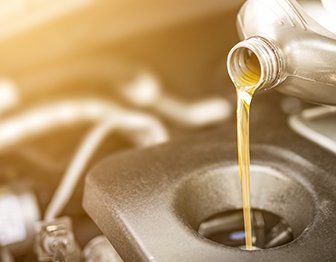1. Oils/Filters/Fluids Oil is a very important part of all automobiles. When oil is fresh, additives inside help to cool and lubricate the engine. As the oil sifts through vehicle over time, it becomes contaminated and dirty. Once this starts happening, the dirty oil is no longer doing your vehicle any good and can actually start to degrade the performance. Increased friction and chemical buildup will slowly deteriorate your engine.
But all this is completely preventable. Just make sure you get your oil changed regularly to avoid any trouble. A well accepted guideline regarding an oil change is to get one every 3 months or 3,000 miles. Along with an oil change, a check of the filter is also a good idea.
Small Fact: Brand new oil is a light amber color and somewhat clear. After just a few minutes of use, that amber color quickly turns to a dark brown. After months of use, if left unchanged, it will turn to an icky black.








